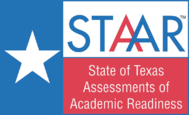This article relies largely or entirely on a single source .(December 2024) |
The Missouri Assessment Program (MAP) is an annual set of mandatory standardized tests taken by students in the U.S. state of Missouri.
This article relies largely or entirely on a single source .(December 2024) |
The Missouri Assessment Program (MAP) is an annual set of mandatory standardized tests taken by students in the U.S. state of Missouri.
Grade-Level Assessment - Students in grades 3-8 are tested in English Language Arts and math. Students in grades 5 and 8 are also tested in Science.
End-of-Course Assessment - Students are required to take Algebra I, English II, Biology and Government prior to graduation. Districts may also administer Algebra II, American History, English I, Geometry, Personal Finance and Physical Science assessments.
MAP-A - There is also the MAP-Alternate (MAP-A) designed for students with severe cognitive disabilities who meet grade level and eligibility criteria. [1] Communication arts is assessed at grades 3-8 and 11, math is assessed at grades 3-8 and 10 and science is assessed at grades 5, 8 and 11. Missouri does not have a 2% modified assessment.
WIDA ACCESS - In 2010, Missouri became the 23rd state to join the WIDA Consortium. Missouri uses the WIDA ACCESS assessment as its English Language Proficiency assessment. Missouri requires all incoming possible English learners students to use the WIDA Screener.
The General Certificate of Secondary Education (GCSE) is an academic qualification in a range of subjects taken in England, Wales, and Northern Ireland, having been introduced in September 1986 and its first exams taken in 1988. Public schools in Scotland use the Scottish Qualifications Certificate instead. However, private schools in Scotland often choose to follow the English GCSE system.

The Union County Magnet High School (UCMHS) is a magnet public high school located in Scotch Plains on the Union County Vocational Technical Schools Campus, serving the vocational and technical educational needs of students in ninth through twelfth grades throughout Union County, in the U.S. state of New Jersey. The school's goal is to prepare students for college/vocational training utilizing technology through problem solving, project-based learning, and interdisciplinary education. Students must apply to enter the school and the school accepts one-thirds of applicants. The school is accredited by the Middle States Association of Colleges and Schools Commission on Elementary and Secondary Schools since 1946.

Education in the Netherlands is characterized by division: education is oriented toward the needs and background of the pupil. Education is divided over schools for different age groups, some of which are divided in streams for different educational levels. Schools are furthermore divided in public, special (religious), and general-special (neutral) schools, although there are also a few private schools. The Dutch grading scale runs from 1 to 10 (outstanding).

Secondary education is the last six or seven years of statutory formal education in the United States. It culminates with twelfth grade. Whether it begins with sixth grade or seventh grade varies by state and sometimes by school district.
Sixth grade is the sixth year of formal or compulsory education. Students in sixth grade are usually 11-12 years old. It is commonly the first or second grade of middle school or the last grade of elementary school, and the sixth school year since kindergarten.

The Texas Assessment of Knowledge and Skills (TAKS) was the fourth Texas state standardized test previously used in grade 3-8 and grade 9-11 to assess students' attainment of reading, writing, math, science, and social studies skills required under Texas education standards. It is developed and scored by Pearson Educational Measurement with close supervision by the Texas Education Agency. Though created before the No Child Left Behind Act was passed, it complied with the law. It replaced the previous test, called the Texas Assessment of Academic Skills (TAAS), in 2002.
In New York State, Regents Examinations are statewide standardized examinations in core high school subjects. Students were required to pass these exams to earn a Regents Diploma. To graduate, students are required to have earned appropriate credits in a number of specific subjects by passing year-long or half-year courses, after which they must pass at least five examinations. For higher-achieving students, a Regents with Advanced designation and an Honors designation are also offered. There are also local diploma options.

The Union County Academy for Information Technology (UC-AIT) is a full-time four-year public high school located in Scotch Plains, in Union County, in the U.S. state of New Jersey, on the Union County Vocational Technical Schools Campus. The school is part of the Union County Vocational Technical Schools (UCVTS), which serves students in all of Union County. AIT focuses on education in computer science and computer engineering with an emphasis on mathematics and science.
The Union County Academy for Allied Health Sciences (UCAAHS) is a full-time vocational public high school, located in Scotch Plains, in Union County, in the U.S. state of New Jersey. The school serves students in ninth through twelfth grades from across Union County as a career academy on the Union County Vocational Technical Schools Campus, which also includes the Academy for Information Technology, Union County Magnet High School, Academy for Performing Arts, and the Union County Vocational Technical High School. The school has been accredited by the Middle States Association of Colleges and Schools Commission on Elementary and Secondary Schools.
Education in Missouri is provided by both public and private schools, colleges, and universities, and a variety of public library systems. All public education in the state is governed by the Missouri State Board of Education, which is made up of eight citizens appointed by the Governor of Missouri and confirmed by the Missouri Senate.
The End of Course Test is an academic assessment conducted in many states by the State Board of Education and Island of Bermuda. Georgia, for example, tests from the ninth to twelfth grades, and North Carolina tests for any of the four core class subjects.

Abby Kelley Foster Charter Public School is a K–12 school located at 10 New Bond St., Worcester, Massachusetts, United States in former Heald Machine Company buildings. The school was founded in 1998.
The Pennsylvania System of School Assessment (PSSA) is a standardized test administered in public schools in the state of Pennsylvania. Students in grades 3-8 are assessed in English language arts skills and mathematics. Students in grades 4 and 8 are also assessed in skills relating to natural science, including the field of data interpretation and analysis. Since 2013, high school students have taken the Keystone Exam in place of the PSSA for their standardized testing. The PSSA's were made by a company in New Jersey. The PSSA is written, owned and administered by Pearson Education. There are reporting categories for each subject which list eligible content to be tested in each grade. Assessment Anchors specify what is considered eligible content for each grade level tested. A Proficient or Advanced level is needed to be able to qualify as passing the PSSA.
The John E. Dwyer Technology Academy is a four-year comprehensive public high school serving students in ninth through twelfth grades in Elizabeth, in Union County, in the U.S. state of New Jersey, as part of the Elizabeth Public Schools. The Technology Academy shares one large building with the Admiral William Halsey Leadership Academy, the Peter B. Gold Administration Building, and the Thomas Dunn Sports Center, which together form the Main Complex most commonly known as "The Main" to students and teachers. The Main complex holds more students, teachers, and administrators than the other high school in the city. It is known as the heart of all Elizabeth Academies.

The Arkansas Department of Education (ADE) is a cabinet-level agency of the Arkansas state government overseeing public education for K-12, higher education institutions, and career and technical education.
The WIDA Consortium is an educational consortium of state departments of education. Currently, 42 U.S. states and the District of Columbia participate in the WIDA Consortium, as well as the Northern Mariana Islands, the United States Virgin Islands, Palau, the Bureau of Indian Education, and the Department of Defense Education Activity. WIDA designs and implements proficiency standards and assessment for grade K-12 students who are English-language learners, as well as a set of proficiency standards and assessments for Spanish language learners. WIDA also provides professional development to educators and conducts research on instructional practices.
The Common Core State Standards Initiative, also known as simply Common Core, was an American, multi-state educational initiative begun in 2010 with the goal of increasing consistency across state standards, or what K–12 students throughout the United States should know in English language arts and mathematics at the conclusion of each school grade. The initiative was sponsored by the National Governors Association and the Council of Chief State School Officers.

The State of Texas Assessments of Academic Readiness, commonly referred to as its acronym STAAR, is a series of standardized tests used in Texas public primary and secondary schools to assess a student's achievements and knowledge learned in the grade level. It tests curriculum taught from the Texas Essential Knowledge and Skills, which in turn is taught by public schools. The test used to be developed by Pearson Education every school year, although the most recent contract gave Educational Testing Service a role in creating some of the tests, under the close supervision of the Texas Education Agency.
A high school diploma is a diploma awarded upon graduation of high school. A high school diploma is awarded after completion of courses of studies lasting four years, from grade 9 to grade 12. It is the school leaving qualification in the United States and Canada.